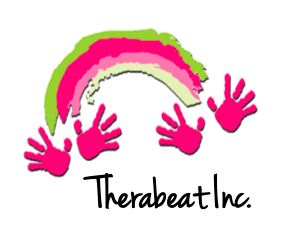Article Review: “Music Improves Social and Participation Outcomes for Individuals With Communication Disorders: A Systematic Review”
Tess Vreeland
Communication is a relatively large goal domain in the field of music therapy due to its importance in activities of daily living for all people. With more recent research, the strategies and results of music with communication goals have improved and expanded. Dr. Boster and others published a research review titled “Music Improves Social and Participation Outcomes for Individuals With Communication Disorders: A Systematic Review” in 2020. The purpose of their research was to explore the effects of arts-based interventions on the socialization and participation of people with communication disorders. However, the researchers involved in this review noted that most of the studies fitting the criteria for the review used specifically music-based interventions. The structure of their review consists of explanations of communication disorders, definitions of social and participation outcomes for people with communication disorders, and an explanation of arts-based interventions targeting these goals. The researchers then outline the criteria for the articles examined which resulted in 86 articles being included in the review to cover the categories of communication disorders as follows: pediatrics with Autism Spectrum Disorder, pediatrics with developmental and acquired disabilities, adults with developmental disabilities, and adults with acquired disabilities. The conclusion consists of a discussion of the commonalities among the various study results and implications for music therapy benefiting patients with communication disorders.
The results of this review are separated by category of participants in each study. For the pediatrics with Autism Spectrum Disorder, some of the social and participation variables with positive increases include: joint attention; participation in group and peer interactions; verbal and nonverbal expression and engagement; and emotional understanding among many others. The results for the pediatric population with developmental or acquired disabilities show suggestive positive trends in variables such as frequency of verbal and nonverbal responses, engagement and participation in peer or group interactions, use of appropriate nonverbal communication, and attention to tasks among other variables. Frequency of group interactions and the understanding and expression of pragmatics were the primary positive findings in studies with adults with developmental disabilities. For adults with acquired disabilities including Alzheimer’s Disease, TBIs and Parkinson’s Disease, the primary positive trends involved frequency of verbal and nonverbal behaviors and engagement and participation in groups.
The researchers hypothesize in the discussion section that the increase in music as a tool to aid communication disorders may be attributed to “the continued rise of music therapy as an evidence-based treatment strategy, the accessible nature of music for individuals with disabilities, and the communicative nature of music” (Boster, et. al., 2020, p. 31). The researchers highlight the meaning of the results, limitations (such as sample size) across the studies reviewed, and supported reasons why music therapy is effective in addressing communication goals. Music is an extremely accessible therapeutic medium for all ages and abilities and logistically in a variety of settings; however, the researchers note that “casual listening of music on mobile devices is not the same as music therapy that is guided or facilitated by music therapists” (Boster, et. al., 2020, p. 31). This study is important in furthering the collaboration between music therapists, speech-language pathologists, and other professionals supporting communication goals. Through reviewing and analyzing the existing research, Dr. Boster and others concluded that music-based interventions have shown to benefit individuals with communication disorders.
For the full article, please visit https://doi.org/10.1093/jmt/thaa015.
Reference
Boster, J. B., Spitzley, A. M., Castle, T. W., Jewell, A. R., Corso, C. L., & McCarthy, J. W. (2020). Music improves social and participation outcomes for individuals with Communication Disorders: A systematic review. Journal of Music Therapy, 58(1), 12–42. https://doi.org/10.1093/jmt/thaa015

